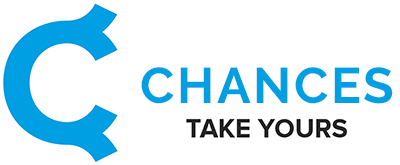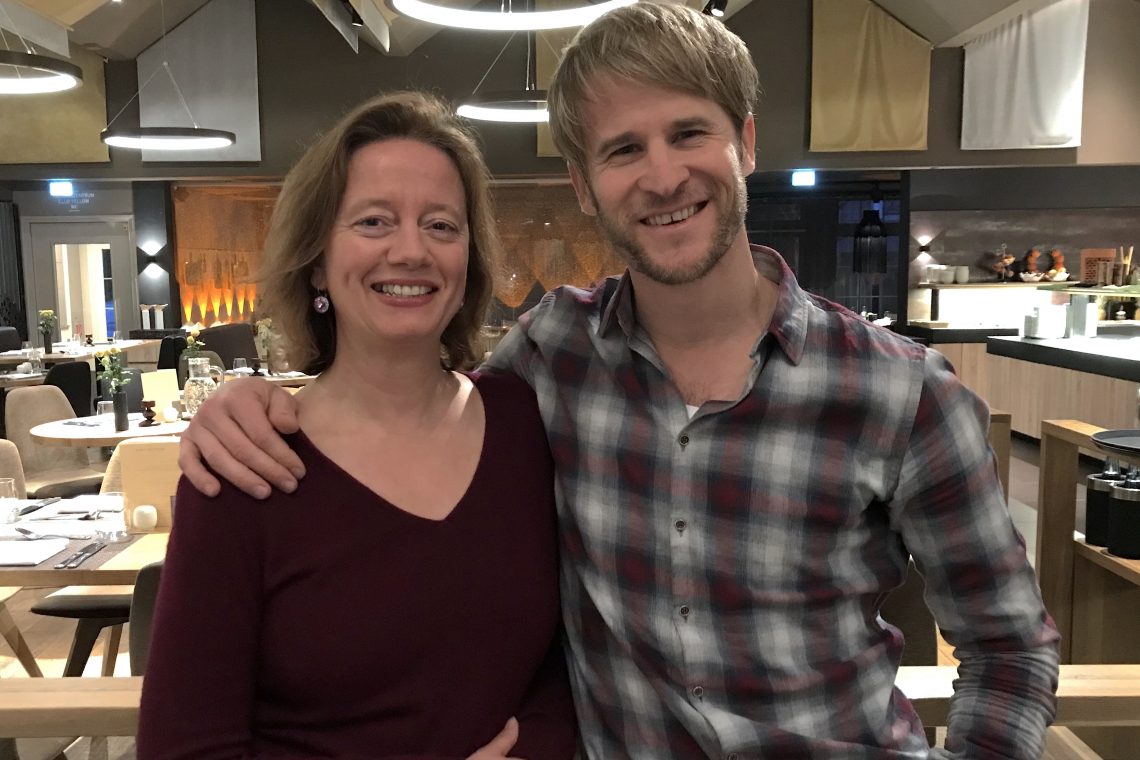Since CHANCES was set up in 2014, it has undergone three changes: in the process, it has reviewed its own convictions and also assessed and refined its organisation and services. Anneke Hillmer asked the CHANCES owners, Claudia Fountain (CF) and Mike Michels (MM), what ideas and approaches they have now moved away from and what, apart from this website, was new:
You call yourselves “development optimists”: What do you mean by this?
CF: We believe that people aspire to having a successful life, both professionally and privately. We also believe that development is possible under the right circumstances. This mindset is optimistic and also influences my work.
MM: I am optimistic about my ability to shape development processes in a positive way. This mindset gives me freedom and opens up possibilities. When we work with executives, we therefore focus on their underlying rationale and the associated opportunities and limitations. We ask ourselves: How flexible is the executive in their approach? Are there any recognizable patterns in their approach? How free are they? What possibilities do they see and have? We are interested in their mindset and motivation. We work together with the executive to find the answer to the core professional question: Is there a good fit between the personal maturity level of the executive and the demands made by the organization? Does the executive have the maturity required to master current and future challenges? The task is to make this a positive fit.
You yourselves also constantly work on your own development. What do you still firmly believe in, and what not?
MM: We believe that people can only achieve their full potential through continuous personal development, and also only in a culture that provides the freedom to do so. This applies to both us and our clients. This is the only way that enables a creative contribution to be made. Executives in organizations that change must constantly adapt their thinking, the way they feel and the way they behave. So we are no longer convinced by rigid, one-size-fits-all programmes. We cannot guarantee any client that conflicts will be resolved in a few theoretical sessions or within set periods of time. The requirements are usually too complex for this. However, we do believe that if we go deeper and provide support, the solution can be found within the executive themselves and in the organizational system.
CF: We call this “deep diving”. We are interested here in the mindset of the executives. This is what governs the potential for development. And that is what we look very closely at. We ask ourselves: What does the client visualize? Is this possible with the programmes they want or do we need something else? We examine the true current status and the target status, do research and investigate, develop alternatives and provide feedback. This process inevitably brings us onto the same page as the customer and we create the basis for everything else. This approach is better suited to the organisations of today.
What does DEEP DIVING look like in practice?
MM: We ask more questions, for example: How can people develop towards letting go of power? How can they lead others to self-organization? What conflicts of identity arise when roles change? Just think of “agile working” models or the constant advance of digitalization. In the new kind of organizations, mainstream learning programs quickly reach their limits. That is why CHANCES is focused more than ever on guided development processes that centre on the “ego development” of executives and managers.
CF: When I think of transactional analysis and the desire to guide people to achieve autonomy, I consider the ego concept and personality development to be appropriate specifications. Seeing things through this new filter gives us more freedom and possibilities than just simply adopting standard TA methodology. As soon as I start with the degree of maturity, I am tuned into the personality of the executive and become a “development facilitator” by revealing where their limits lie, what the person can achieve, and which direction things have to go in order to open up new opportunities.
MM: And the type of intervention is different, more subtle. During the process we constantly ask ourselves: Where is the person right at this moment? Are the ideas for steps in development too ambitious or too modest? We gradually align more closely with the executive and set tasks in line with the pace of the process and development.
CF: It is about these perspectives and differentiations. We also want to reach the executive on an emotional level. We often hear: “That’s not logical.” But theory and pure logic should not be equated with clarity: especially not if somebody is making no progress with their current “inner logic”. When we bring in our perspective, we usually then hear: “I’ve never seen it that way before.” This is where change begins.
How does an organization benefit from the personality development of its executives?
MM: The feedback we get shows that the right kind of development in personality brings greater clarity and stability into the organisation. Reorganization processes run more smoothly because the maturity level of the manager fits the role and task. The development of personality cannot be said to be a private matter for people in leadership roles, as the person’s level of maturity has a significant influence on the executive’s effectiveness and impact.
CF: Personality development is therefore an approach with an ongoing effect. The mature executive learns to scrutinize philosophies and behavioural patterns and to find new solutions that are a better fit to individual situations. They are actively involved in shaping change in their organisation and also respond more flexibly on a personal level, for example in conflict situations. Executives and teams with the ability to reflect in this way don’t need rigid hierarchies or pressure to be effective or efficient. However, they need to be sensitised to how organisation and personal maturity interact.
Which methods do you use to support implementation of what executives learn?
MM: We design individual “homework”, especially focused observation tasks. In doing so, we successively transfer the responsibility for further development to the executive themselves. They have to bring their observations from their day-to-day lives into the discussion and internalize the process of “observing—analysing—feeling—changing course”. Executives must address their issues outside the training setting if lasting transformation is to take place.
CF: We create “challenges” for the executives and for teams. After all, we’re also working with groups. Where possible, we tie this in with any of the executives’ specified requirements or develop our own. We then look at how far individual aspects have developed in the relevant people. Finally, we then have the customized development exercises. This also means the members of the team challenging each other. In this way everyone remains alert, with a healthy amount of tension keeping the development process alive. The new culture is put into practice because everyone is actively involved and assumes responsibility.

